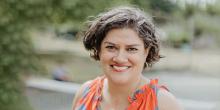Read about SPH people, research and impact.
SPH Blog
Seven interdisciplinary teams that include School of Public Health researchers were awarded Tier 1 and Tier 2 pilot grants from the UW Population Health Initiative in Winter Quarter.

This year’s annual Husky 100 awards have recognized 11 students within the School of Public Health for making the most of their time at the University of Washington.

The UW School of Public Health and Dean Hilary Godwin are pleased to announce India J. Ornelas has been named the interim chair of the Department of Health Systems and Population Health (HSPop) .
Ahoua Koné, co-chair of the School of Public Health Equity, Diversity and Inclusion Committee, has received the 2022 Martin Luther King Jr. Community Service Award.
Setting a standard of public service in Snohomish County
Helping governments strengthen health systems & defeat malaria, TB, HIV
Building community resilience to prevent ACEs & foster equity
Addressing the needs of Washington’s Latinx communities
Top statistician leads health research in Taiwan
What influenced you to pursue a degree in nutritional sciences?
Growing up with a large extended Puerto Rican family, food was a way for us to show and give love. It has always been one of my greatest passions and interests and I knew from a young age that it would somehow be involved in what I pursued professionally. I attended culinary school and worked in kitchens in Seattle for about 7 years.
Innovating the study of workplace exposures
Protecting the Pacific from the effects of climate change
Uncovering the adverse reactions of commonly used drugs
Using creativity to prevent new HIV infections in Africa
Partnering with communities to improve Native health
